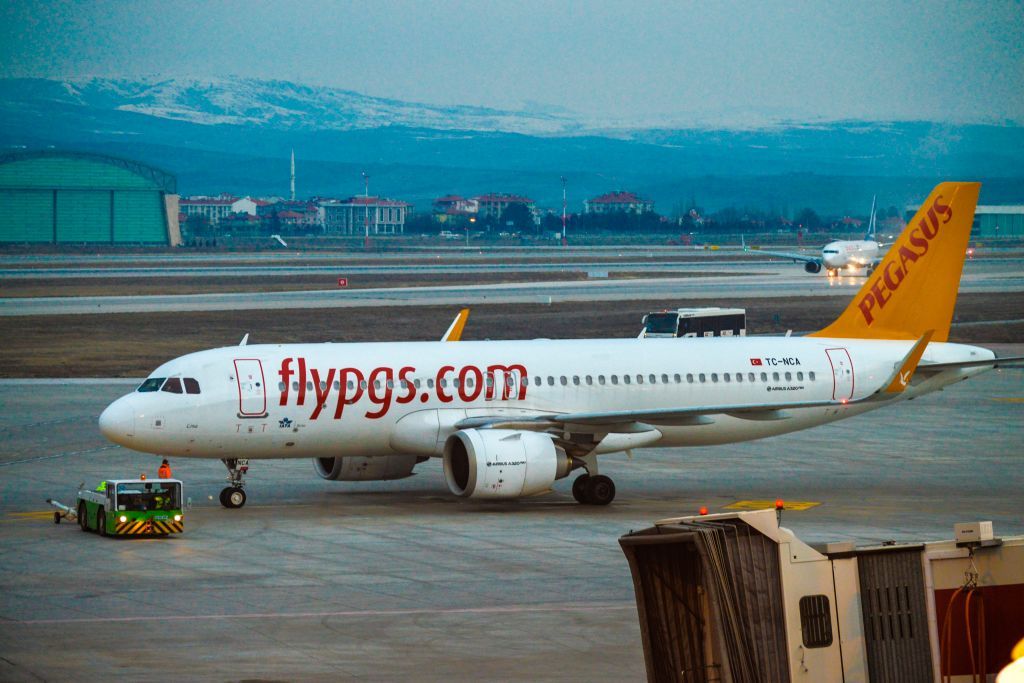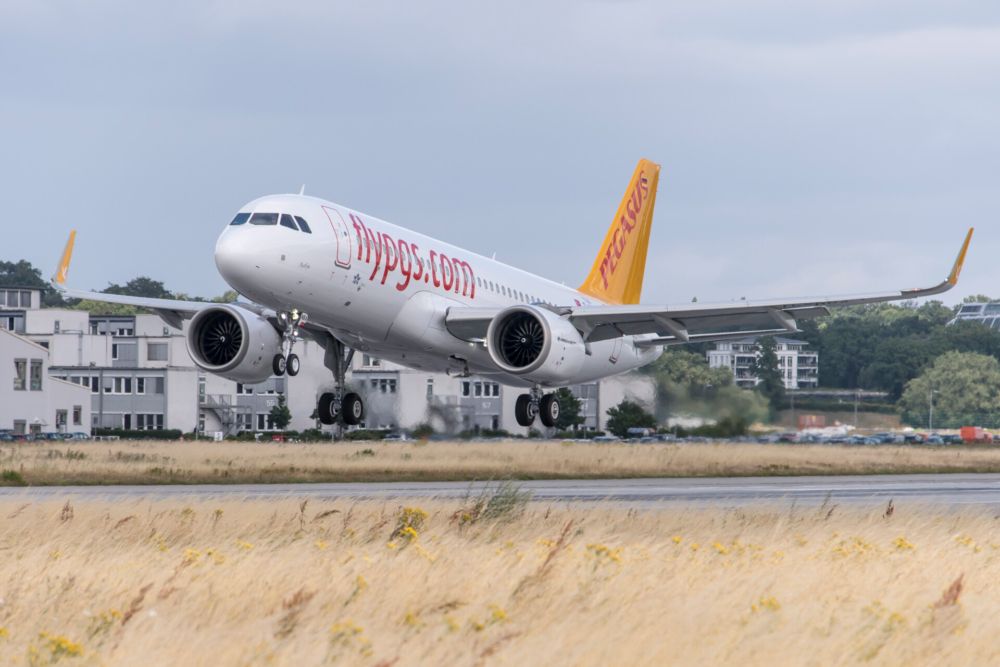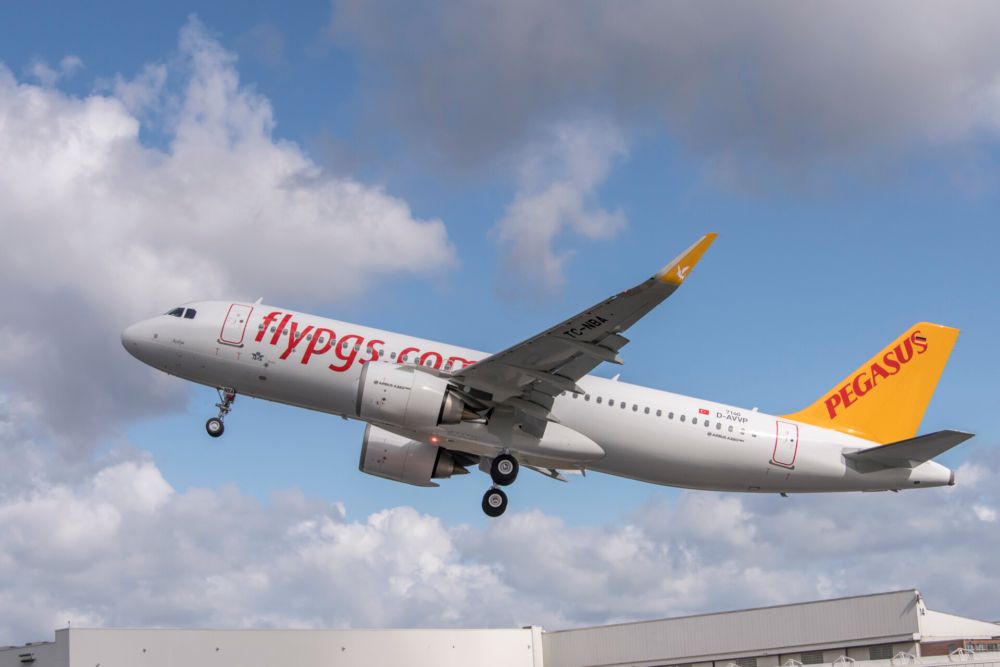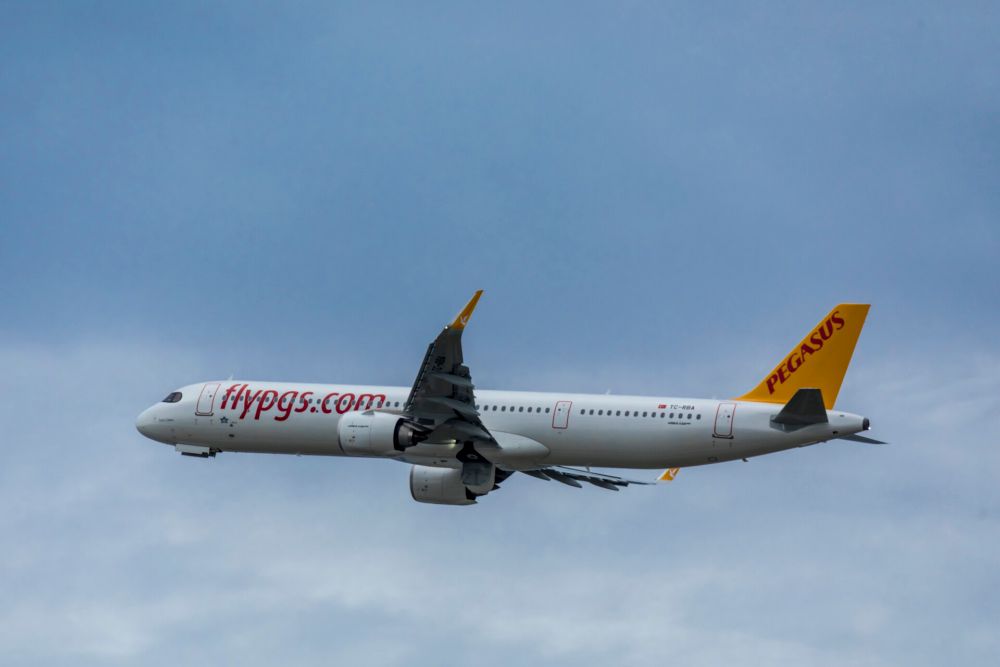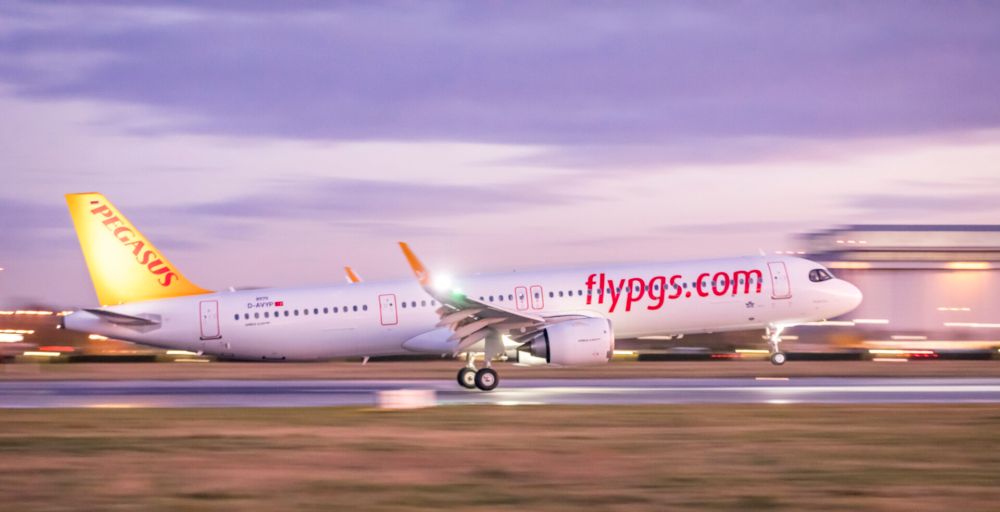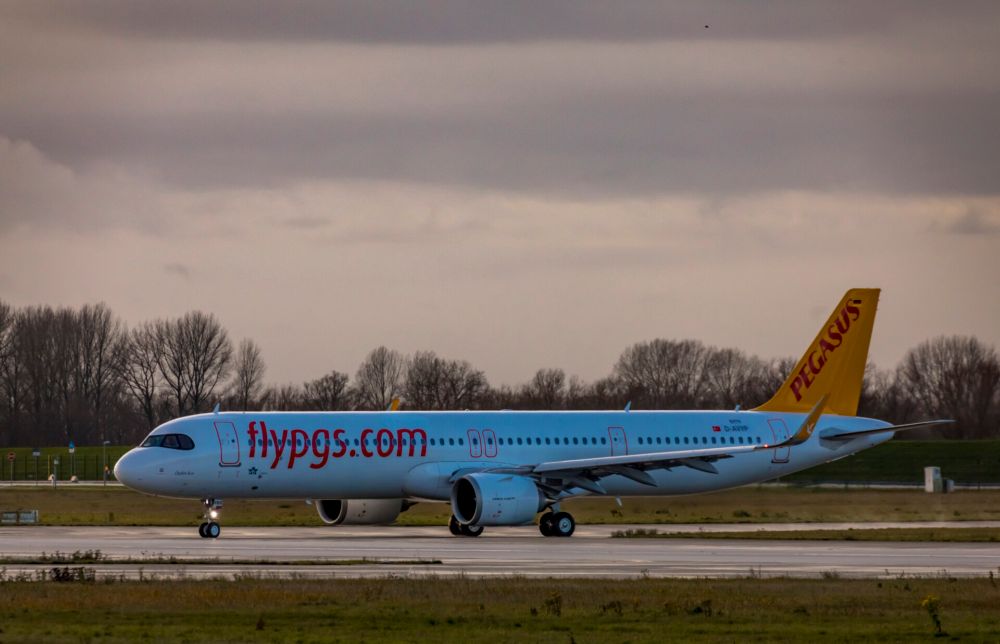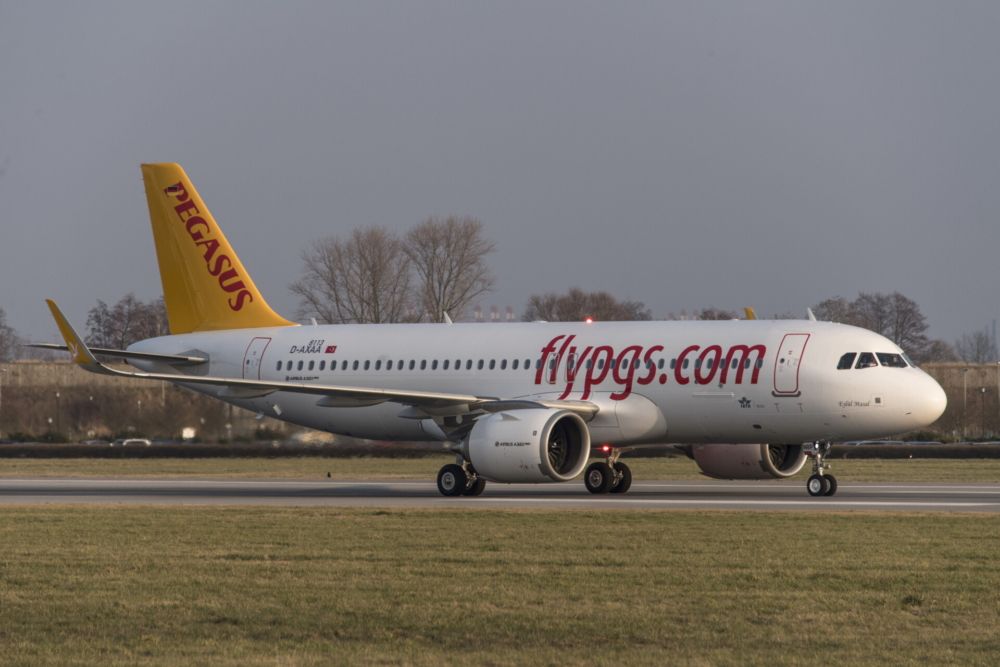Turkey finds itself at the boundary of Asia and Europe. Its location offers airlines from the country bountiful opportunities to serve transiting passengers traveling from east to west, and vice versa. Pegasus Airlines is one such carrier, and Simple Flying recently had the chance to speak to its Chief Commercial Officer, Güliz Öztürk, about its network strategy.
A brief snapshot of Pegasus' network
Let's begin by looking at Pegasus' existing network. The Turkish low-cost carrier boasts impressive diversity to its route portfolio, which is centered around a hub at Istanbul Sabiha Gökçen Airport (SAW). The airline also has bases elsewhere in Turkey, with Adana, Ankara, Antalya, and Izmir considered focus cities, alongside Ercan in Northern Cyprus.
According to the airline, it serves a total of 120 destinations in 44 countries. 30% of these are within Turkey itself, with Pegasus offering services to 36 domestic airports. In addition to an extensive European network, the carrier serves North Africa, Asia, and the Middle East. As we shall explore later, Germany is one of its largest European markets.
A different approach to other LCCs
Many European low-cost carriers like easyJet, Ryanair, and Wizz Air pride themselves on having diverse point-to-point networks. This model sees them establish bases across the continent to ensure a greater number of direct flights. However, while Pegasus is also an LCC, it has opted for the hub-and-spoke model, and with good reason. Öztürk explains:
"Being based in Istanbul and thanks to our strong hub and spoke model, we have a great opportunity to carry guests across continents on transit flights due to Istanbul’s advantageous geographical positioning."
A benefit of this is that it can attract not only passengers who want to visit Turkey, but also those who have desires to travel afield. On this matter, Öztürk commented that:
"Using Istanbul as our flight hub between Europe, Asia, the Middle East, North Africa, and beyond, our guests can fly further out while still paying less, which of course is attractive to VFR traffic and means that we can support this demand not just in Turkey, but in a wide number of countries and destinations."
A case study
To put Pegasus Airlines' transit model to the test, let's look at an example of connecting route it offers via Istanbul Sabiha Gökçen. London to Dubai has always been a popular corridor, even amid the current crisis, and passengers can make the journey to the UAE from Stansted with Pegasus Airlines. Flying tomorrow, the following itinerary costs just £237 ($314).
- London Stansted 10:20 - Istanbul Sabiha Gökçen 17:00.
- Istanbul Sabiha Gökçen 20:40 - Dubai International 02:05 (+1).
Of course, with a total journey time of nearly 12 hours, this isn't as convenient as a direct flight. However, the cheapest of those departing from London tomorrow, a seven-hour Emirates service from Gatwick, costs almost twice as much, at £460 ($609).
Booking flights at such short notice isn't usually the done thing. However, going away in two months for Valentine's Day yields the same results. Flying from Stansted via Istanbul with Pegasus on February 13th, 2022 would currently set you back just £202 ($267).
It is worth noting that this itinerary serves Dubai's Sharjah Airport, which is a little further out of the city. Nonetheless, it is almost twice as cheap as the lowest-priced direct option on that date. Once again, that would be Emirates from Gatwick, costing £395 ($522).
Over a third of passengers transit
With transiting through Istanbul with Pegasus being such a robust option, it is unsurprising to hear how many of the carrier's passengers use the airline to connect. Routes serving destinations south and east of Istanbul are particularly popular, with Öztürk stating:
"On our international network between January and November 2021, transit guests made up 37% of our overall traffic, with Beirut, Hurghada, Sharm El Sheikh, Tehran, Erbil, Tbilisi, and Moscow being some of our most popular connecting routes from Europe."
Pegasus Airlines has also been able to foster connectivity through the use of codeshare agreements. It has these in place with Flynas and Nile Air, alongside, as Öztürk explained to Simple Flying, "interline partnerships with KLM, ITA, Qatar Airways, Delta, Emirates, and S7."
Stay informed: Sign up for our daily and weekly aviation news digests.
Germany is a key European market
For any Turkish carrier, Germany will always be high on its list of priorities. It has a huge Turkish community, and around three million people there have Turkish roots. This largely stems from a labor agreement signed between West Germany and Turkey in October 1961, whereby the former invited Turkish Gastarbeiter ('guest workers') to emigrate there.
Pegasus Airlines is no exception to this rule, and it presently serves nine destinations in the Federal Republic. The first of these was Stuttgart, to which it commenced flights 14 years ago, in December 2007. It has seen steady growth ever since, with Öztürk stating that:
"Germany continues to be one of our most important markets. Until the pandemic began, the number of guests we carried across our network in Germany had been on a steady upward trend since the launch of our scheduled service, with 13 million guests carried between the two countries between 2007 and 2020."
Pegasus remains open to German expansion
If things go to plan, Pegasus may end up adding more German destinations to its network in the coming years. Looking to the future, Öztürk concludes that:
"Beyond the nine airports that we currently serve in Germany, there are a few airports that are on our radar that we are currently considering. We want to launch these routes in the future, though the timing will depend on our fleet availability, obtaining traffic rights, and slot availability at Sabiha Gökçen."
With big plans for both its fleet and network, Pegasus Airlines will certainly be a carrier to keep an eye on as the airline industry looks to recover from the present crisis.
What do you make of Pegasus' prospects as a connecting airline? Have you ever transited through its Istanbul Sabiha Gökçen hub? Let us know your thoughts and experiences in the comments!

